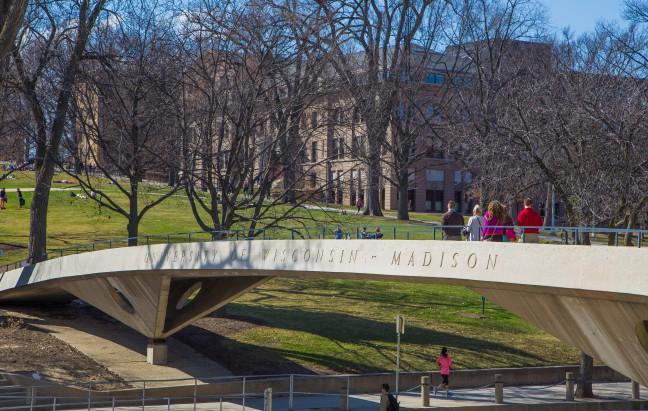With a Virginia-based organization targeting the University of Wisconsin for its holistic admissions process, campus experts say it could be years until any potential cases brought against the university see the light of day.
The Project on Fair Representation launched three websites last Monday, targeting Harvard University, University of North Carolina and the University of Wisconsin, asserting the institutions use unfair consideration of race and ethnicity in admissions. The campaign is attempting to recruit denied applicants to the schools as plaintiffs to begin building its case.
This effort comes in the wake of last summer’s Supreme Court ruling in Fisher v. University of Texas, which said the university must use a process of “strict scrutiny” to ensure academic demonstration and race-neutral factors are given precedent before taking racial classifications into consideration, according to the UWnotFair website.
“Our initial analysis is the University of Wisconsin hasn’t done anything to comply to the new Supreme Court standards,” Edward Blum, Project on Fair Representation director, said.
However, Ruth Litovsky, UW’s Ad Hoc Diversity Plan Committee co-chair, said one of the first things Chancellor Rebecca Blank did when she arrived was hire someone to assess UW’s policy. She said the UW legal studies department is closely reviewing Fisher v. University of Texas to ensure the campus is not in a position to be sued.
Blum said his group believes considering race as a factor is fundamentally unfair and goes against the original principles of the Civil Rights Movement, such as the idea that race should not be counted against or in favor of a person.
UW Law professor Larry Church said assessing the project’s claims comes down to a question of how diversity is defined and quantified.
“The technical legal issue is that the Supreme Court has said specific racial quotas are unconstitutional, but it has also said that an effort to achieve diversity of viewpoints and diversity of experience among a student body is fine,” Church said. “So the question is: What exactly do those categories mean?”
Peter Carstensen, a UW law professor, said to bring this legal challenge to an actual lawsuit, the project will have to find plaintiffs who can make a plausible claim that a diversity policy of the institution cost them admission to a university.
In this case, it can be difficult to get plaintiffs because it starts out with the premise that they were rejected and not many people want to boast about that, Church said.
Blum declined to comment on if or how many plaintiffs had contacted UWnotFair.
Litigation for a case like this would take longer than it would for a student to earn a degree, Carstensen said.
UW Provost Paul DeLuca said in a statement that when making decisions involving admissions, academic credentials are the most important factor. UW performs a comprehensive review of an applicant’s entire record, a process known in higher education as holistic admissions, he said.
“We believe the educational benefits provided by a diversity of viewpoints, backgrounds, talents, perspectives and experiences are essential components of higher education,” DeLuca said.
UW is currently in the process of finalizing the Diversity Plan, which addresses admissions policies as well as programs to ensure accountability for student success in the classroom.
The current draft lists its third argument for diversity and climate efforts as increasing the opportunity for higher education for groups historically underrepresented in, or excluded from, colleges and universities as a form of social justice.
“UW has a holistic [admissions] policy and there’s a big push to diversify while maintaining a high-quality student body,” Litovsky said.


